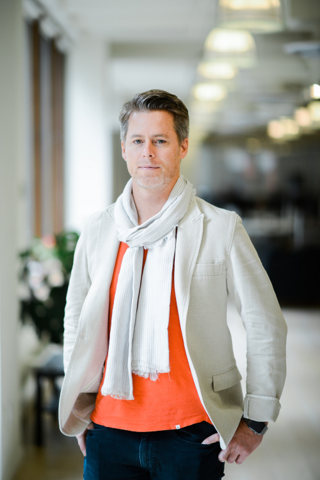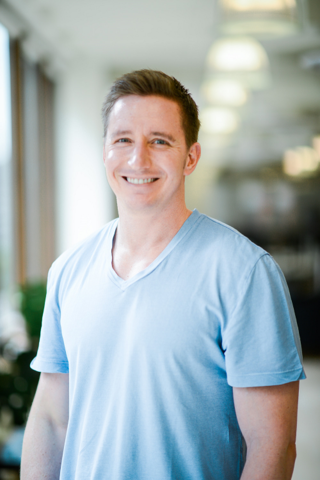
Spencer Kimball is an American computer programmer, entrepreneur, and business executive. He is the CEO of Cockroach Labs, a company he co-founded in 2014. His work as a programmer includes creating GNU Image Manipulation Program (GIMP) while still in college, and assisting the source code development of CockroachDB, the namesake software of Cockroach Labs. In addition to Cockroach Labs, Kimball was involved in the founding of other tech startups including WeGo and Viewfinder.

Peter Mattis is an American computer programmer, entrepreneur, and business executive. He is the CTO and co-founder for Cockroach Labs, a company he co-founded in 2014. His work as a programmer includes launching GNU Image Manipulation Program (GIMP) while still in college, and assisting the source code development of CockroachDB, the namesake software of Cockroach Labs.
Brizzly was a third-party Twitter and Facebook interface. It was unveiled at one of TechCrunch's events in 2009 and was acquired by AOL in 2010.

Justin Michael Rosenstein is an American software programmer and entrepreneur. He co-founded the collaboration software company Asana in 2008.

Facebook is a social networking service originally launched as TheFacebook on February 4, 2004, before changing its name to simply Facebook in August 2005. It was founded by Mark Zuckerberg and college roommates and fellow Harvard University students, in particular Eduardo Saverin, Andrew McCollum, Dustin Moskovitz, and Chris Hughes. The website's membership was initially limited by the founders to Harvard students, but was expanded to other colleges in the Boston area, the Ivy League, and gradually most universities in the United States and Canada, corporations, and by September 2006, to everyone with a valid email address along with an age requirement of being 13 or older.
Andreessen Horowitz is a private American venture capital firm, founded in 2009 by Marc Andreessen and Ben Horowitz. The company is headquartered in Menlo Park, California. As of April 2023, Andreessen Horowitz ranks first on the list of venture capital firms by assets under management.

Peter Fenton is an American venture capitalist based in Silicon Valley. He is a general partner at Benchmark, a venture capital firm. Fenton has steadily worked his way up the Forbes Midas List of the 100 top technology investors, starting at no. 94 in 2007, then rising to no. 62 in 2008 and no. 50 in 2009. Fenton was ranked no. 4 when Forbes resumed publishing its Midas List in 2011 and was described as the "most productive venture capitalist on our list". In 2012, Fenton was ranked no. 5 on the Forbes Midas List and was no. 2 in 2015. He has been a perennial member on the Midas List since 2007.

A like button, like option, or recommend button is a feature in communication software such as social networking services, Internet forums, news websites and blogs where the user can express that they like, enjoy or support certain content. Internet services that feature like buttons usually display the number of users who liked each content, and may show a full or partial list of them. This is a quantitative alternative to other methods of expressing reaction to content, like writing a reply text. Some websites also include a dislike button, so the user can either vote in favor, against or neutrally. Other websites include more complex web content voting systems. For example, five stars or reaction buttons to show a wider range of emotion to the content.
UserVoice is a San Francisco–based Software-as-a-Service (SaaS) company that develops customer engagement tools.
Tom Stocky is an American computer scientist and technology executive. He is senior vice president of lab & data platform at insitro, a drug discovery startup. He was previously vice president of Search at Facebook.

Redis Ltd. is a private computer software company headquartered in Mountain View, California. Redis is the sponsor of the open-source in-memory NoSQL database of the same name and the provider of Redis Enterprise software, cloud services, and tools for global companies. The company’s research and development center is based in Tel Aviv and it has additional offices in London, Austin, and Bengaluru.

Optimizely is an American company that provides digital experience platform software as a service. Optimizely provides A/B testing and multivariate testing tools, website personalization, and feature toggle capabilities, as well as web content management and digital commerce.
Socialthing was a social news aggregator that founded in 2007 and was acquired by AOL the following year for an undisclosed sum. Later renamed AOL Lifestream, the service was a central part of AOL's unsuccessful attempt to compete against upstart social networks such as Facebook.
Internet.org is a partnership between social networking services company Meta Platforms and six companies that plans to bring affordable access to selected Internet services to less developed countries by increasing efficiency, and facilitating the development of new business models around the provision of Internet access. The app delivering these services was renamed Free Basics in September 2015. As of April 2018, 100 million people were using internet.org.
Chris Wetherell is a software developer and musician from the US best known as the founder of Google Reader and as an influential "ex-Googler" since his departure from the company.

CockroachDB is a commercial distributed SQL database management system developed by Cockroach Labs.

Solid is a web decentralization project led by Sir Tim Berners-Lee, the inventor of the World Wide Web, originally developed collaboratively at the Massachusetts Institute of Technology (MIT). The project "aims to radically change the way Web applications work today, resulting in true data ownership as well as improved privacy" by developing a platform for linked-data applications that are completely decentralized and fully under users' control rather than controlled by other entities. The ultimate goal of Solid is to allow users to have full control of their own data, including access control and storage location. To that end, Tim Berners-Lee formed a company called Inrupt to help build a commercial ecosystem to fuel Solid.










